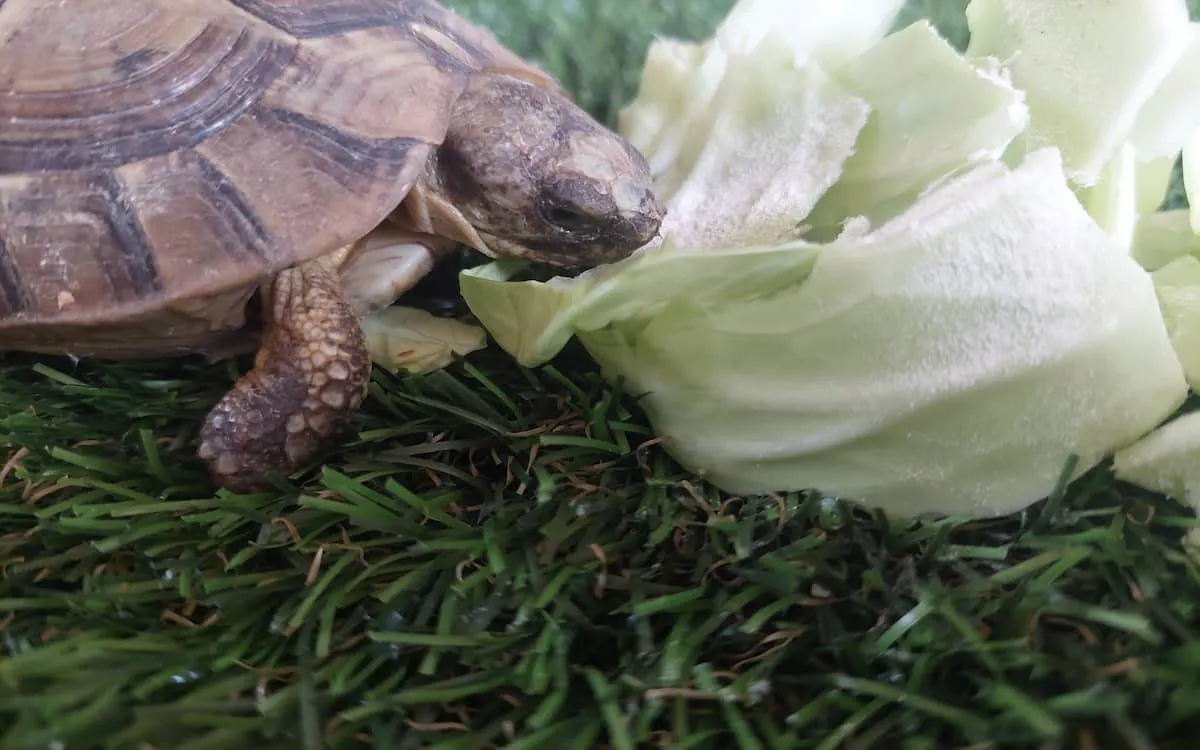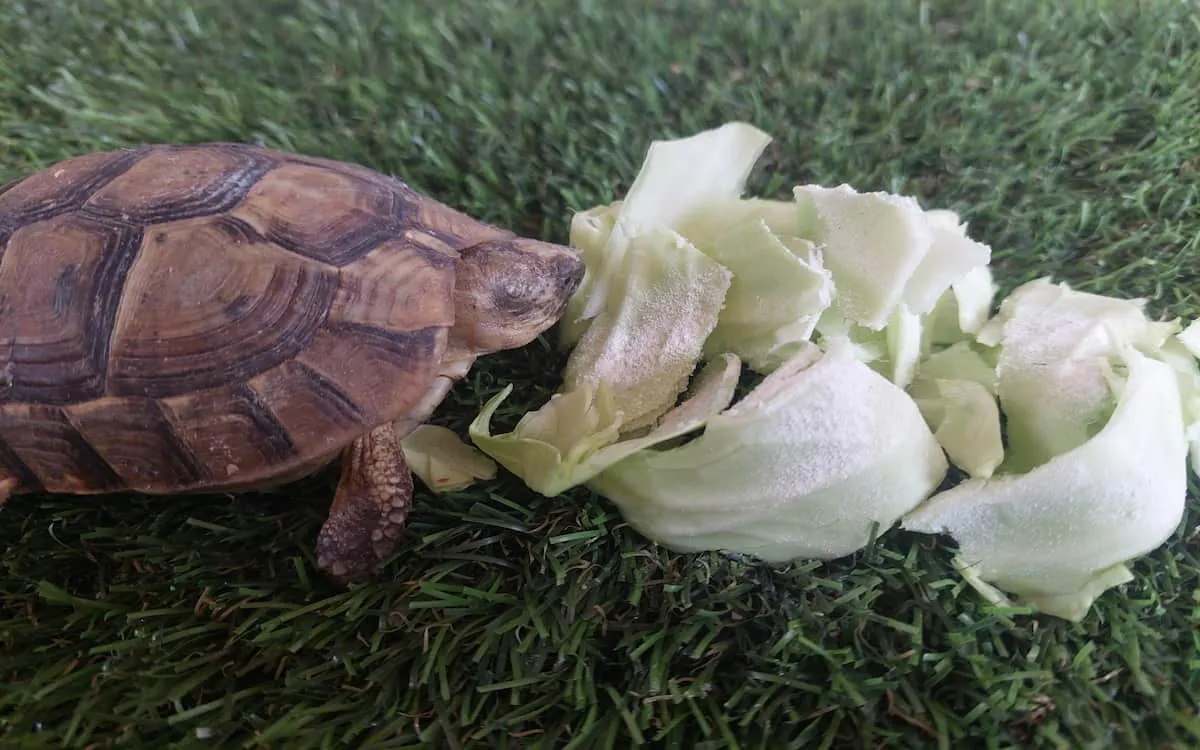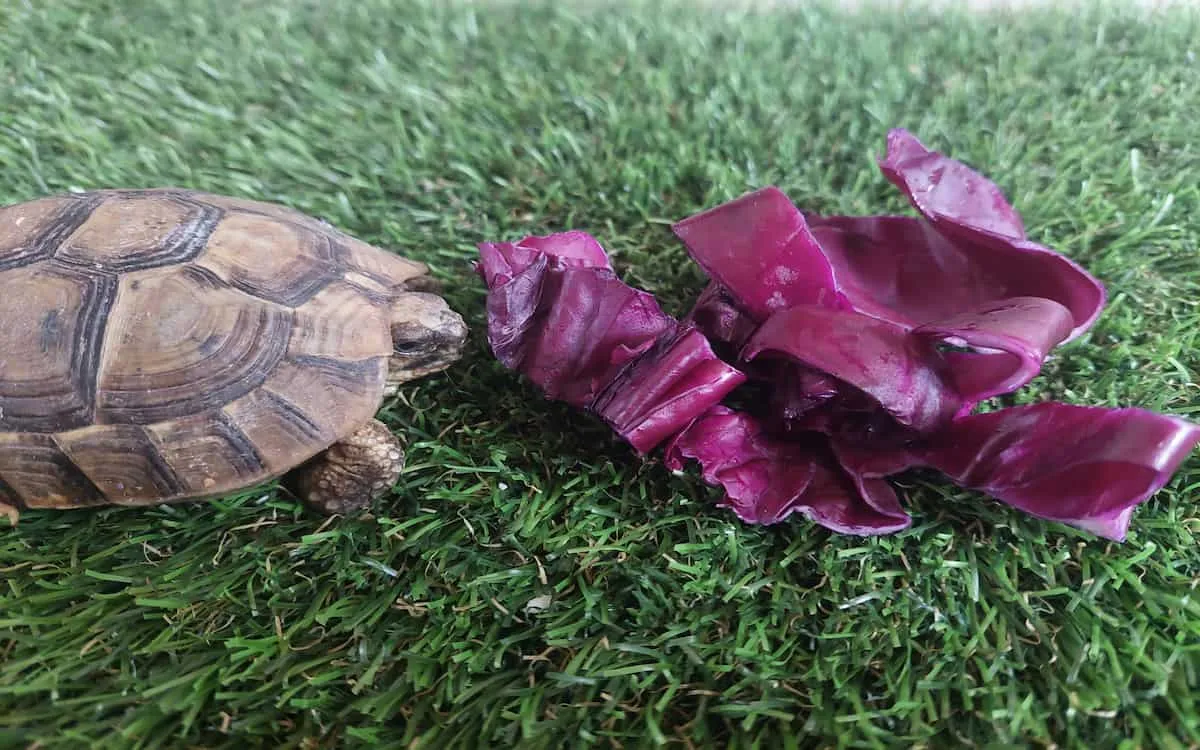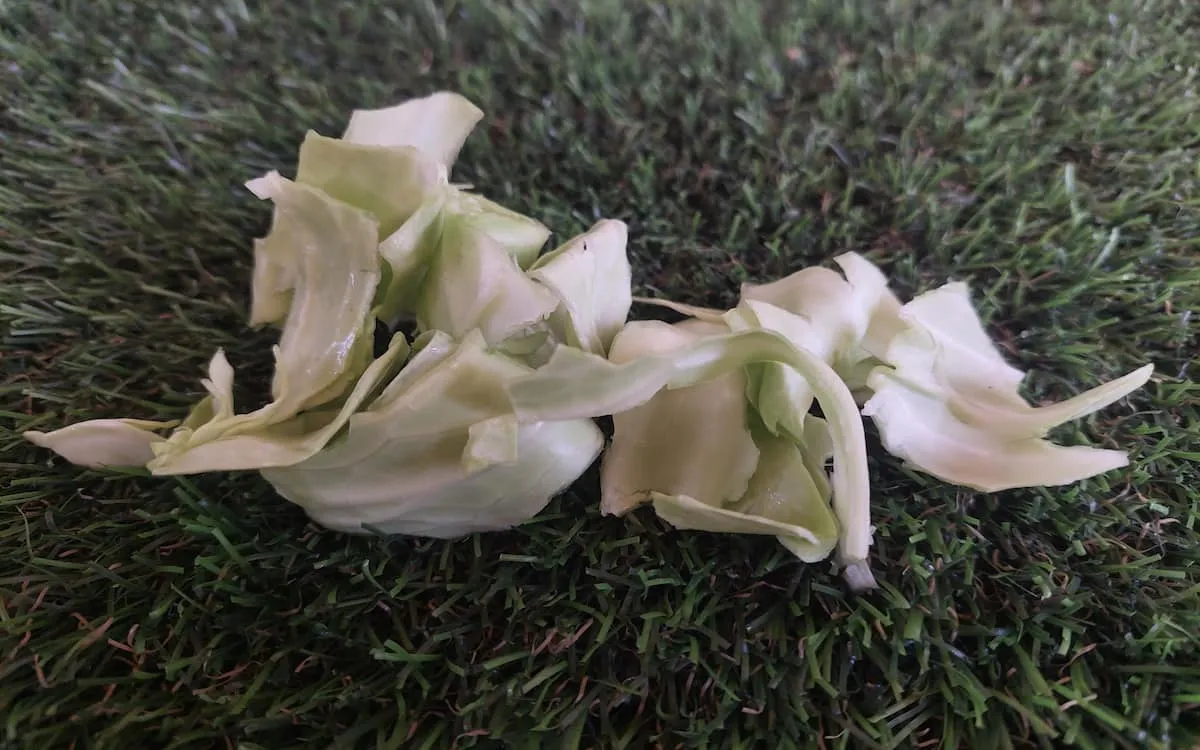If you’ve ever Googled “Can tortoises eat cabbage?” you’ve likely stumbled upon conflicting advice.
Some sources strongly discourage cabbage as part of a tortoise’s diet, whereas others advocate for it, highlighting its numerous health benefits. So, who should you trust?
Can All Tortoise Species Eat Cabbage?
| Tortoise Species | Can Eat Cabbage |
|---|---|
| African Spurred | Yes, but rarely |
| Aldabra | Yes, but rarely |
| Galapagos | Yes, but rarely |
| Greek | Yes, occasionally |
| Hermann’s | Yes, occasionally |
| Indian Star | yes, in moderation |
| Leopard | Yes, occasionally |
| Red-Footed | Yes, occasionally |
| Russian | Yes, occasionally |
Absolutely, they can! While cabbage doesn’t pose any immediate threat to your tortoise, it’s not a food item they should be munching on daily. Here’s why:

cabbage has high water content and low fiber. This mix can mess up your pet’s digestion if it becomes a regular part of their diet.
But that’s not all. Cabbage also contains goitrogens, substances that can interfere with your tortoise’s thyroid function.
Over time, this could lead to health issues.
How Much Cabbage to Feed Your Tortoise
Here’s an easy guide to keep in mind:

cabbage should make up no more than 10% of your tortoise’s diet. In simpler terms, that’s about half a leaf (for small tortoises ) once or twice a week, mixed into their regular salad.
Anything more, and you might be setting your pet up for dehydration, diarrhea, or thyroid issues.

Tip: Vary the types of cabbage you feed – green, red, purple, savoy, and bok choy. By doing so, you avoid overloading your tortoise with any particular nutrient or toxin.
How Often to Feed Your Tortoise Cabbage
Because not all tortoises are created equal, the feeding frequency depends on their species and activity level.
For tropical or subtropical tortoise species like red-footed or leopard tortoise, a serving of cabbage once a week during the warm months and once every two weeks during cooler months strikes a perfect balance.
If you’re an owner of a temperate or Mediterranean tortoise such as a Greek or Russian tortoise, offering cabbage twice a week during their active season works splendidly. However, during their hibernation period, cut it down to once every two weeks.
For dessert or arid species like the sulcata or gopher tortoise, feeding them cabbage once every two weeks throughout the year keeps their dietary needs in balance
How to Prepare and Serve Cabbage to Your Tortoise?
Let’s shell out the details on how to prepare and serve cabbage to your tortoise.

- Thoroughly wash the cabbage to remove any pesticides or harmful parasites.
- Cut the cabbage into bite-sized pieces that your tortoise can easily chew and swallow.
- Jazz up the cabbage by mixing it with other tortoise-safe flowers or vegetables like spinach, kale, and cucumber.
- If your tortoise needs a little nutritional boost, sprinkle some calcium like crumbled cuttlebone or vitamin supplements on the cabbage.
- Serve the cabbage on a clean, shallow dish that’s easily accessible to your tortoise.
- Remember to remove any uneaten cabbage after a few hours to avoid spoilage or mold growth.
Can Tortoises Eat Cooked Cabbage?
While it’s true that cooked cabbage can be a part of your tortoise’s diet, it isn’t a clear-cut yes.
Cooking can reduce potentially harmful compounds, but it also depletes some of the fiber and crucial nutrients, which can affect your tortoise’s digestive health and overall well-being.
So, while cooked cabbage can occasionally feature on the menu, balance it out with fresh, raw veggies.
Benefits of Cabbage for Tortoises
- Cabbage, packed with vitamin C, acts as a tiny cheerleader for your tortoise’s immune system. It’s like giving them bite-sized pieces of health armor.
- With its low calorie and fat content, cabbage helps keep your tortoise in shape, warding off obesity and metabolic disorders.
- Containing calcium and phosphorus, cabbage supports shell and bone health.
Health Risks of Cabbage to Tortoise
- Cabbage isn’t flawless, though. Its high water content can dilute other nutrients in your tortoise’s meal and may cause digestive issues.
- Low fiber content in cabbage might seem like a non-issue, but for tortoises, it’s a big deal. Insufficient fiber can disrupt their intestinal motility and gut flora, leading to digestive problems.
- Lastly, cabbage contains goitrogens, which can inhibit thyroid hormone production in tortoises. However, a balanced diet can help manage this risk.
What Are Some Alternatives to Cabbage for Your Tortoise?
A diverse, balanced diet is essential for your tortoise’s health. Fresh plants, fruits, and flowers can provide the right mix of nutrients they need to thrive.
If you’re looking to diversify your tortoise’s menu, here are some tasty and healthy alternatives:
- Spinach: A robust source of iron and calcium.
- Kale: Kale is a superfood, rich in antioxidants and loaded with Vitamins K, A, and C.
- Bell peppers: These vibrant veggies aren’t just visually appealing; they are also packed with Vitamin C.
- Zucchini: A great source of fiber and vitamins A and C, zucchini is a wholesome addition to your tortoise’s menu.
Conclusion
So, can tortoises eat cabbage? Yes, but with caution.
Providing a balanced diet with a variety of foods alongside cabbage is the key to a healthy, happy tortoise.
So, next time you’re in the grocery store, don’t forget to grab some cabbage – but maybe pick up some spinach and bell peppers too!
